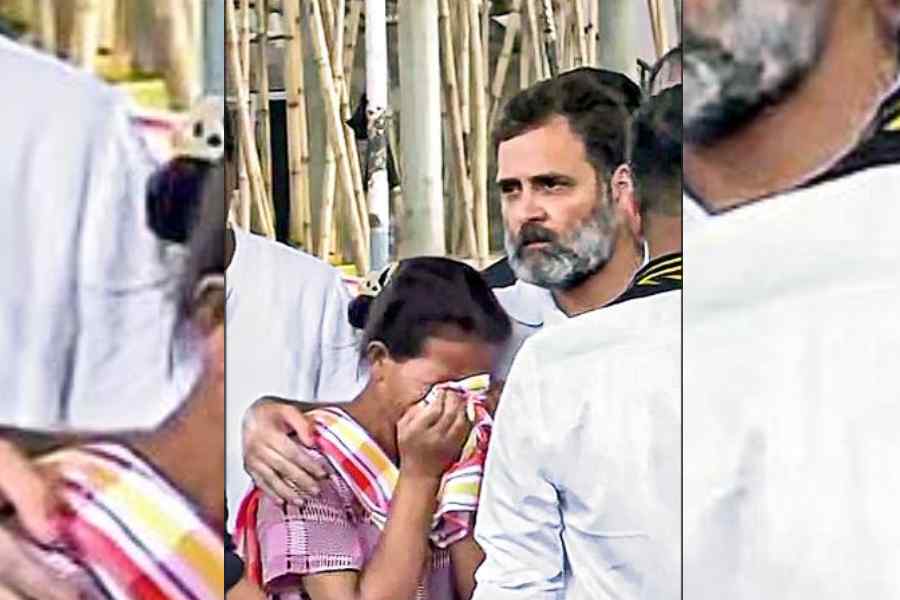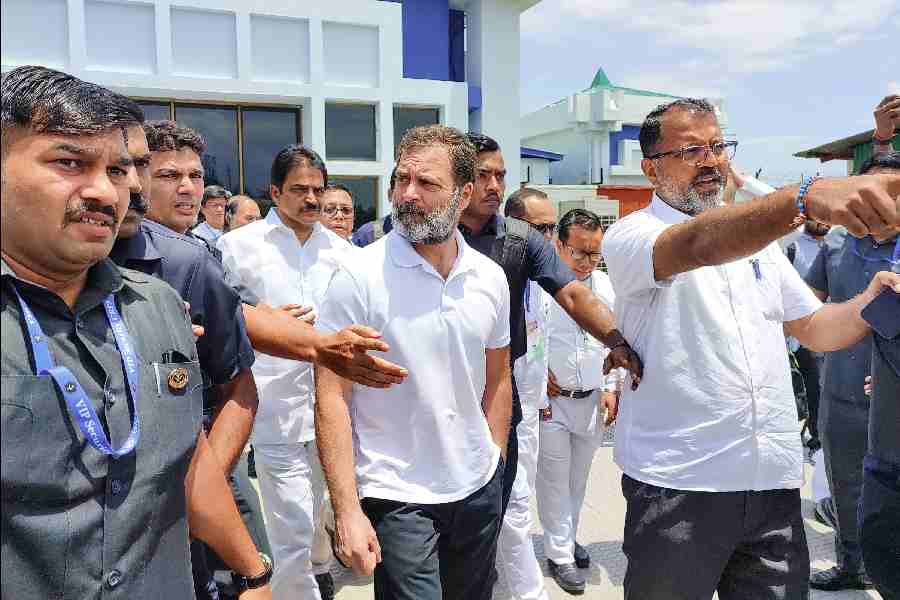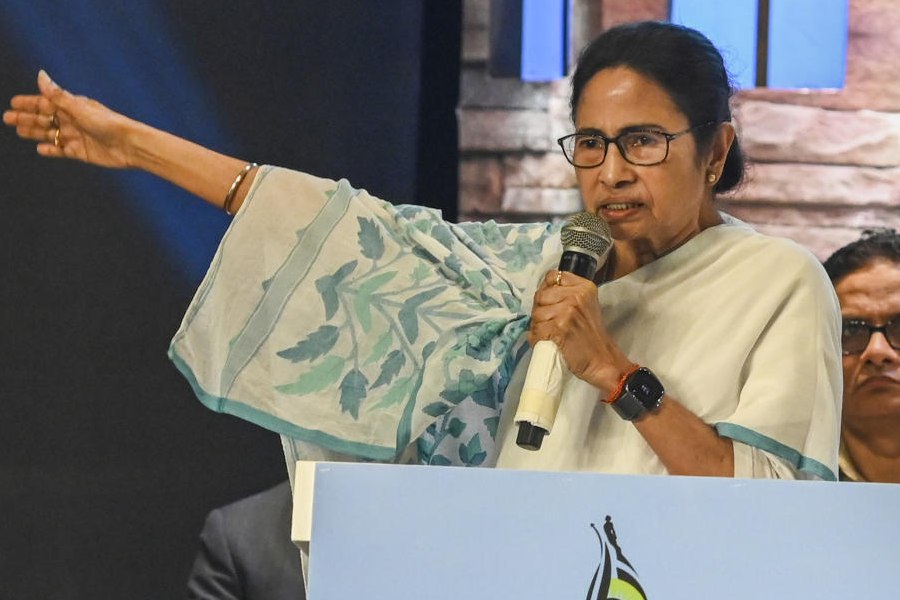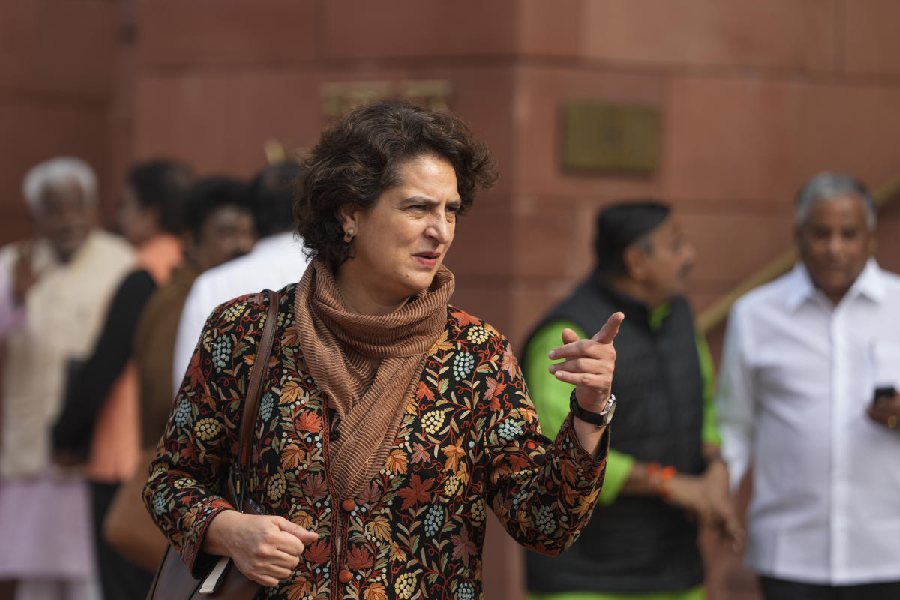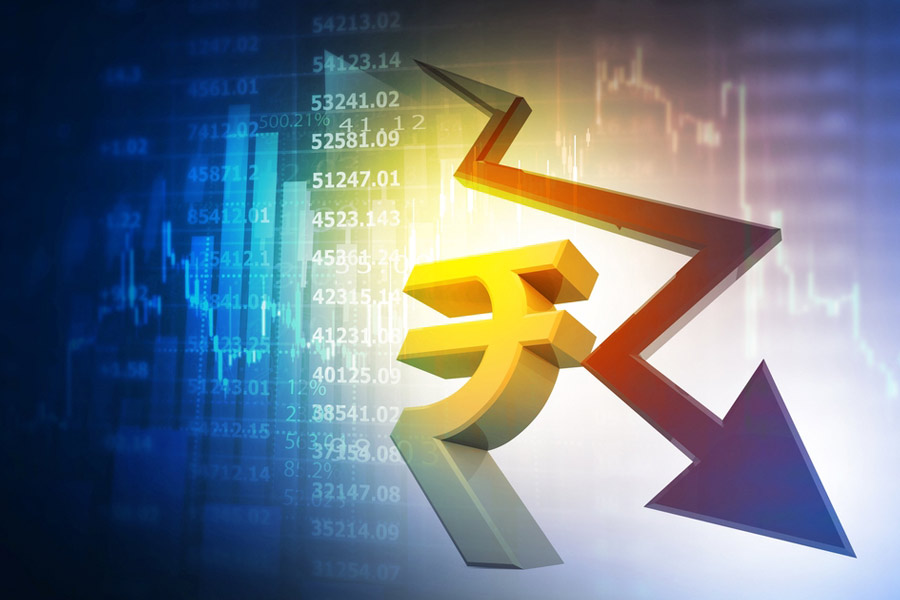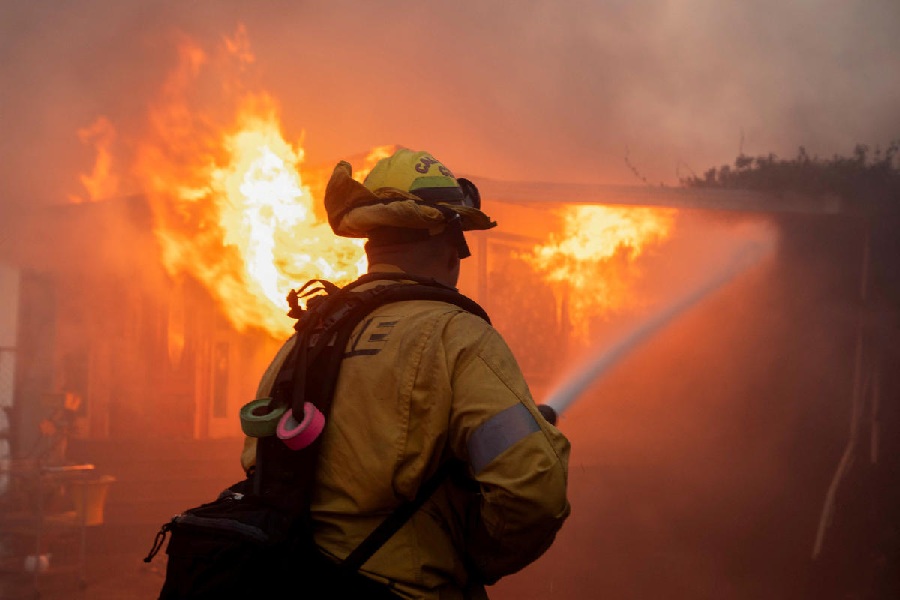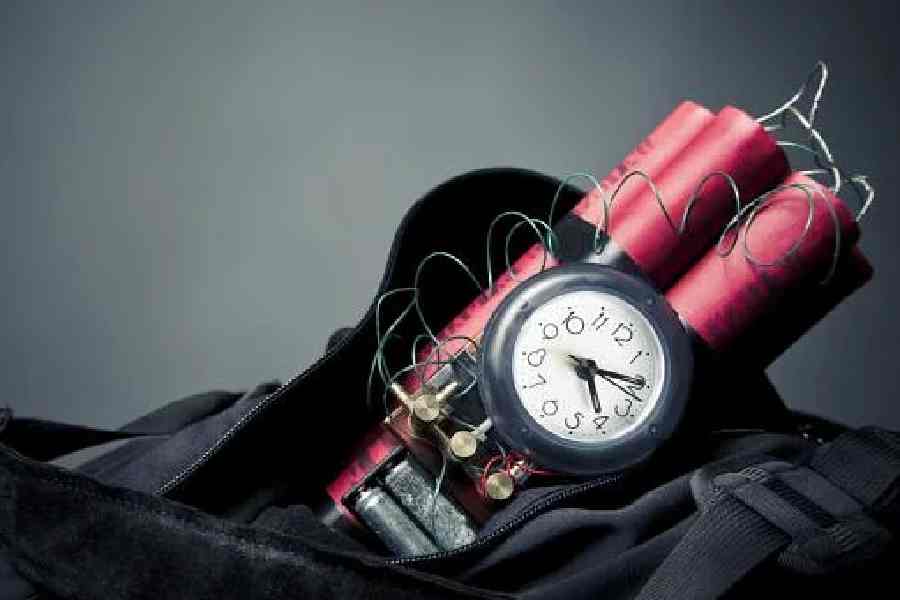The images speak louder than words.
People poured out at Bishnupur in Manipur to protest when Rahul Gandhi was stopped by police on his way to Churachandpur, among the districts worst hit by the violence that has claimed over 130 lives since May 3.
Finally, reaching Churachandpur by a chopper, Rahul threw his arm around a carnage-displaced person who broke down in a relief camp. “Manipur needs healing. Peace has to be our only priority,” Rahul tweeted later.
Exactly a week ago, Prime Minister Narendra Modi was embracing the so-called world’s most powerful man, US President Joe Biden. Modi has not yet found time to break his 56-day-old silence on the continuing Manipur strife, let alone visit the state. Modi has made the 2,400km from New Delhi to Imphal look longer than the 12,000km from the Indian capital to the US Capitol.
On Thursday, Rahul was stopped by the BJP-run administration in Manipur from visiting Churachandpur by road, triggering a confrontation between security personnel and residents and forcing the Congress leader to return to Imphal and take a chopper.
Rahul had landed at Imphal airport around 11.30am and headed to the Kuki-Zo majority Churachandpur, about 62km away, but his convoy was stopped 22km down the road at Bishnupur on the ground of safety.
He was asked by the district administration to take a chopper from Imphal to Churachandpur in view of the volatile situation along the Bishnupur-Churachandpur border, according to Manipur Congress working president K. Devabrata Singh.
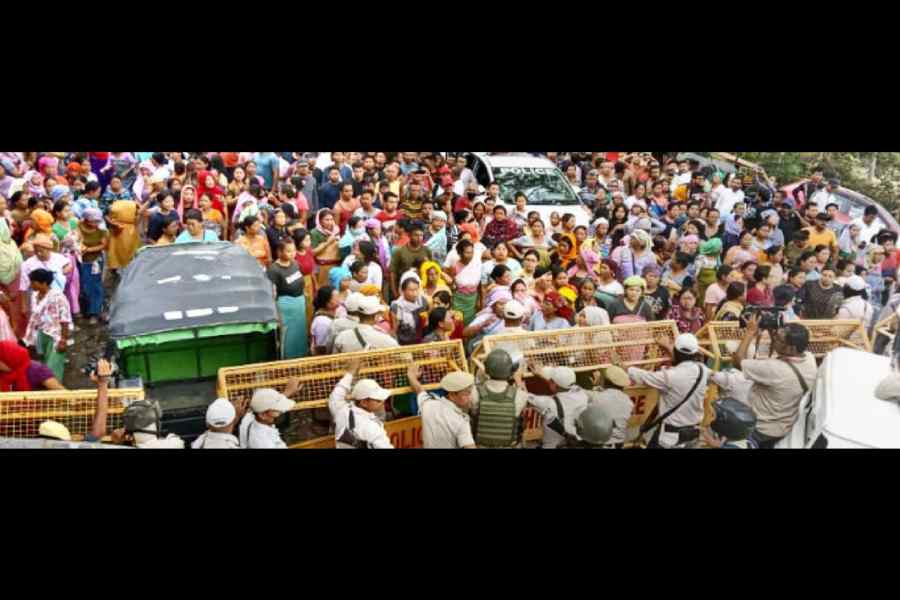
The tussle between residents and cops after Rahul Gandhi’s convoy was stopped by the police in Bishnupur, Manipur, on Thursday. PTI picture
“While security personnel stopped Rahul Gandhi’s cavalcade from proceeding, the people wanted the police to let him go. To them, Rahulji had come at a time of a crisis to hear the affected and find a way to bring peace,” Singh said.
Soon, their numbers grew and a confrontation ensued, prompting the security personnel to lob teargas shells to disperse the crowd.
Singh said: “One of the shells landed near Rahulji’s feet. The police had blocked his convoy from both ends. This went on for about two-and-a-half hours, following which Rahulji returned to Imphal and took a chopper to Churachandpur around 3.40pm. He had to cancel his visit to Moirang in Bishnupur district because he wasdenied permission to land there.”
Permission to land at Moirang was denied owing to “inclement weather”, a source said.
Singh said BJP activists had tried to block the road at two places before Rahul’s cavalcade reached Bishnupur, something which “agitated” the local womenfolk who argued with the police that “we have a tradition of welcoming our guests warmly”.
In a tweet, BJP MLA Rajkumar Imo Singh said Rahul’s visit had “divided the people of the state into two halves shouting slogans like Rahulji Zindabad and Go Back Rahul at Bishnupur”.
Following his visit to Churachandpur, Rahul tweeted: “I came to listen to all my brothers and sisters of Manipur. People of all communities are being very welcoming and loving. It’s very unfortunate that the government is stopping me. Manipur needs healing. Peace has to be our only priority.”
Bishnupur is a Meitei-majority district while Churachandpur is a Kuki-Zo-dominated district. Clashes between the two communities since May 3 have pushed the state to the brink, claiming at least 133 lives and displacing over 60,000 people.
Rahul is the first important leader from the Opposition ranks to visit Manipur amid the strife. Union home minister Amit Shah had visited the state on a stock-taking trip from May 29 to June 1.
There is palpable unhappiness among the people of Manipur over Prime Minister Narendra Modi’s “continued silence” on the situation, and Rahul’s visit and the support he received will keep the spotlight on Modi’s no-show till date, sources said.
In Churachandpur, Rahul visited two relief camps and briefly interacted with civil society organisations and victims’ families, who were waiting for him since 11.30am.
The Indigenous Tribal Leaders’ Forum (ITLF), a conglomerate of recognised Kuki-Zo tribes of Churachandpur, submitted a memorandum to the Congress leader which said the clashes “were not a spontaneous event arising out of a misunderstanding between two communities, but a carefully orchestrated planby the N. Biren Singh-led government and its radical non-government allies tofulfil their majoritarian agenda of usurping tribal landand initiating an ethnic cleansing”.
In a short speech, Rahul said he understood a “tragedy” had taken place in Manipur and he had come to Manipur to “listen and understand” what has happened and try to “bring back peace”.
He said: “You are going through a very very difficult time... my heart and my ears are with you.” Rahul said that if there were any issues in the relief camps, “we will send our people here”.
Rahul returned to Imphal by 6pm and visited a relief camp. He will meet civil society organisations and prominent citizens and also visit a few relief camps before returning to Delhi by Friday afternoon.
“What happened was unfortunate because Rahulji is here to provide the healing touch. He had necessary security clearance from the government,” Singh said.
An official from Bishnupur said they were informed by the advance security team of Rahul that he would be taking a chopper to Churachandpur, but “suddenly we hear” he is coming by road.
“He is a VVIP and the situation along the border is very volatile, so we requested him to return and take a chopper to Churachandpur. Thelocal people had asked us to allow him to proceed by road but they don’t knowthe ground situation. Even Union home minister Amit Shah took a chopper toChurachandpur during his visit last month,” the official said.

Fresh clashes
The police had to use teargas in Imphal West on Thursday evening to disperse protesters who had brought bodies of two civilians killed earlier in the day by armed rioters.
The protesters first brought the bodies to Ima market and then tried to proceed to the chief minister’s bungalow to hand over the bodies in protest against the failure to check violence in the peripheral areas.

